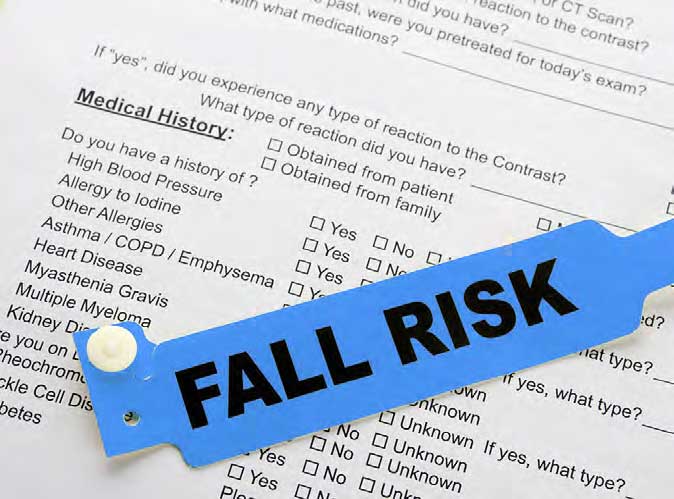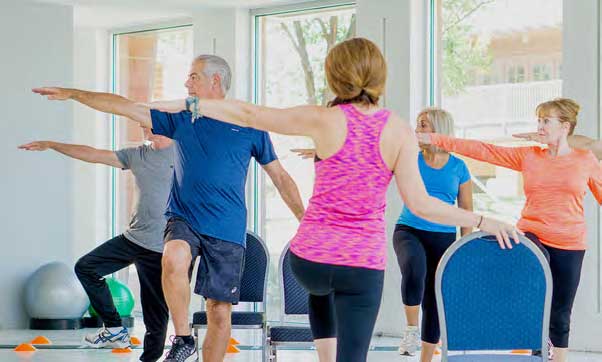 One out of three older adults (those aged 65 or older) falls each year, but less than half talk to their healthcare providers about it. If you have a fall or incident, you want to report it to your healthcare provider because it may be an indication of larger problems or issues. Many people who fall, even if they are not injured, develop a fear of falling. This fear may cause them to limit their activities, which leads to reduced mobility and loss of physical fitness, and in turn, increases their actual risk of falling.
One out of three older adults (those aged 65 or older) falls each year, but less than half talk to their healthcare providers about it. If you have a fall or incident, you want to report it to your healthcare provider because it may be an indication of larger problems or issues. Many people who fall, even if they are not injured, develop a fear of falling. This fear may cause them to limit their activities, which leads to reduced mobility and loss of physical fitness, and in turn, increases their actual risk of falling.
There are many different causes that can contribute to a fall. There are muscular, external, and internal factors. Muscular factors that could contribute to a fall are, the muscles of the legs have become too weak or the muscles of the core aren’t strong enough for balance. Your trunk is the foundation for your posture, balance, and coordinated movement. External factors that can contribute to a fall could be any tripping hazards, distractions, or inadequate support tools such as, canes, walkers, wheelchairs, grab bars, and/or shoes. Internal factors that could contribute to a fall are your vestibular system (inner ear), blood sugar, blood pressure, dehydration, and vision.
 There are many ways to prevent falls from happening. Exercise regularly, it is important that the exercises focus on increasing leg strength and improving balance, and that they get more challenging over time. You want to ask your doctor/pharmacist to review your medications. They can identify what medicines may cause side effects such as dizziness or drowsiness. Making your home safer can reduce and tripping hazards. Be sure to add grab bars wherever needed, improve the lighting in your home, repair or remove lose carpets, and you want to be sure to rearrange any furniture and electrical cords that may be in walking paths. Lastly, you want to always take care of yourself and live a healthy lifestyle. You want to have regular vision and hearing checkups, get adequate amounts of vitamin D and calcium, exercise regularly and eat a healthy, well-balanced diet. Preventing falls can help you live a more independent life. If you can prevent a fall you are less likely to have an injury that can prevent you from carrying on your daily activities, such as bathing, cooking, shopping, or just going for a walk.
There are many ways to prevent falls from happening. Exercise regularly, it is important that the exercises focus on increasing leg strength and improving balance, and that they get more challenging over time. You want to ask your doctor/pharmacist to review your medications. They can identify what medicines may cause side effects such as dizziness or drowsiness. Making your home safer can reduce and tripping hazards. Be sure to add grab bars wherever needed, improve the lighting in your home, repair or remove lose carpets, and you want to be sure to rearrange any furniture and electrical cords that may be in walking paths. Lastly, you want to always take care of yourself and live a healthy lifestyle. You want to have regular vision and hearing checkups, get adequate amounts of vitamin D and calcium, exercise regularly and eat a healthy, well-balanced diet. Preventing falls can help you live a more independent life. If you can prevent a fall you are less likely to have an injury that can prevent you from carrying on your daily activities, such as bathing, cooking, shopping, or just going for a walk.





 © 2025 Kirby Pines LifeCare Community. All Rights Reserved |
© 2025 Kirby Pines LifeCare Community. All Rights Reserved | 